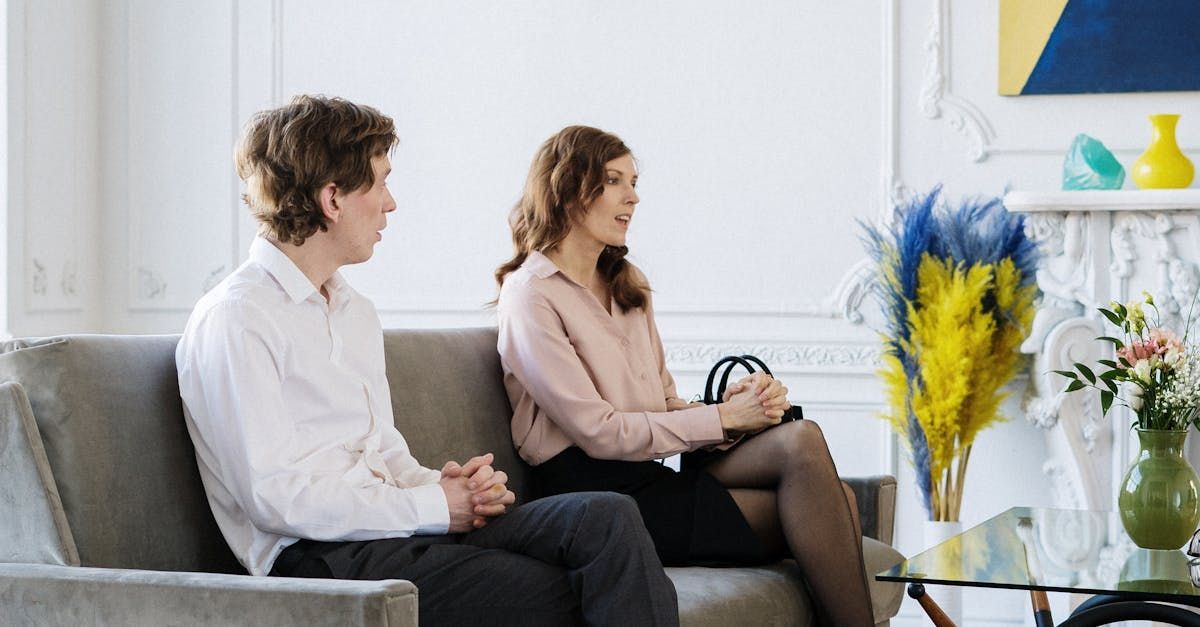what is couple therapy?
Couples come to therapy at different stages in their relationship and it can be incredibly beneficial in many different ways.
Some couples start therapy because they notice unhelpful themes or patterns in their relationship and find themselves stuck having the same argument over and over again. A partner’s perceived unwillingness to change can lead to frustration. Other couples come to therapy because they are approaching a significant life event – like getting married, becoming parents or the children leaving home – and want to navigate that change in the best possible way.
Where there is a mutual desire to work on a relationship, couple therapy can help change the emphasis to the process of each partner reflecting on and revealing themselves, establishing their boundaries, and working together, as this is where lasting emotional and relational growth happens.
The main goal of couple therapy is usually to understand the dynamic of the relationship and what patterns are at play. When two people come together, they bring both themselves to the relationship but also their past experiences. Very often these vulnerabilities are easier to tolerate in the earlier stages of a relationship, but over time, they can become more entrenched causing a lot of unhappiness in the process.
In couple therapy, we work to unravel how unhelpful patterns came to be and what underpins them. Once we’ve identified this, we look at ways to exit these patterns and discover new ways for you to be together that facilitate connection. The aim is always to help you both meet each other’s needs and find healthier ways of responding to each other.
Couple therapy focuses on individual growth rather than demanding partners to change or finding quick fix solutions, and with this increased emotional strength and communication, couples can begin to have a better understanding of each other. In the safe space of therapy couples can learn to drop their defensive behaviours such as anger or withdrawal and to be their authentic selves.
Many couples don’t make it to therapy until they reach “breaking point”, and although it can be helpful in these situations too, ideally it’s best to come as soon as there are issues in the relationship. This will enable you to understand how you’re both feeling and make meaningful changes before things get to a more challenging place.
For some couples, despite their best efforts, being apart may be their only option. Therapy can help to navigate a peaceful end of a relationship and provide the space for each partner to express the difficult feelings that accompany the ending of a relationship such as loss, anger and sadness at the end of relationship, aiding better communication moving forward.
Some couples start therapy because they notice unhelpful themes or patterns in their relationship and find themselves stuck having the same argument over and over again. A partner’s perceived unwillingness to change can lead to frustration. Other couples come to therapy because they are approaching a significant life event – like getting married, becoming parents or the children leaving home – and want to navigate that change in the best possible way.
Where there is a mutual desire to work on a relationship, couple therapy can help change the emphasis to the process of each partner reflecting on and revealing themselves, establishing their boundaries, and working together, as this is where lasting emotional and relational growth happens.
The main goal of couple therapy is usually to understand the dynamic of the relationship and what patterns are at play. When two people come together, they bring both themselves to the relationship but also their past experiences. Very often these vulnerabilities are easier to tolerate in the earlier stages of a relationship, but over time, they can become more entrenched causing a lot of unhappiness in the process.
In couple therapy, we work to unravel how unhelpful patterns came to be and what underpins them. Once we’ve identified this, we look at ways to exit these patterns and discover new ways for you to be together that facilitate connection. The aim is always to help you both meet each other’s needs and find healthier ways of responding to each other.
Couple therapy focuses on individual growth rather than demanding partners to change or finding quick fix solutions, and with this increased emotional strength and communication, couples can begin to have a better understanding of each other. In the safe space of therapy couples can learn to drop their defensive behaviours such as anger or withdrawal and to be their authentic selves.
Many couples don’t make it to therapy until they reach “breaking point”, and although it can be helpful in these situations too, ideally it’s best to come as soon as there are issues in the relationship. This will enable you to understand how you’re both feeling and make meaningful changes before things get to a more challenging place.
For some couples, despite their best efforts, being apart may be their only option. Therapy can help to navigate a peaceful end of a relationship and provide the space for each partner to express the difficult feelings that accompany the ending of a relationship such as loss, anger and sadness at the end of relationship, aiding better communication moving forward.
locations & fee's.
My practice is based in Notting Hill. I also offer online sessions.

